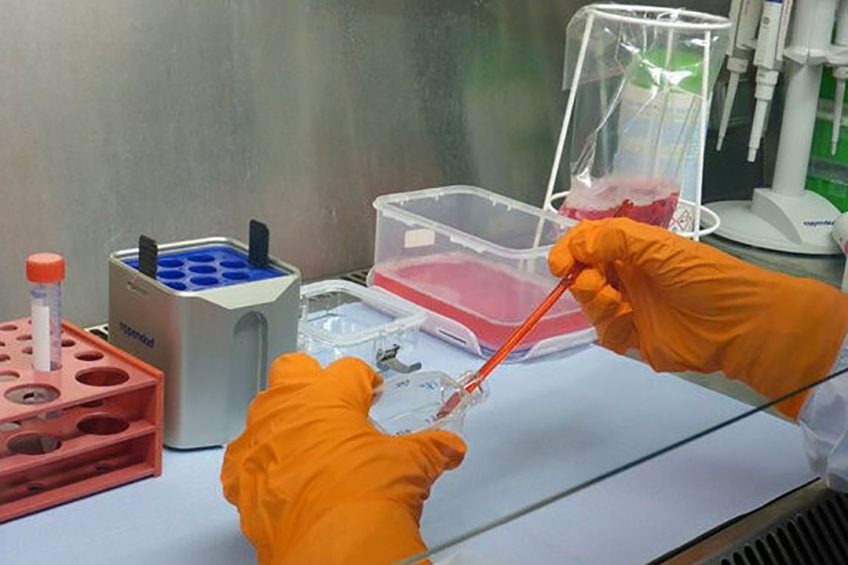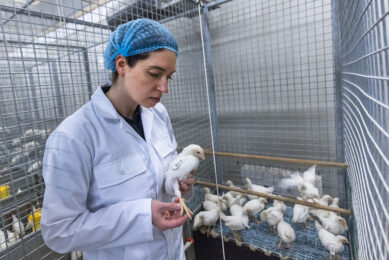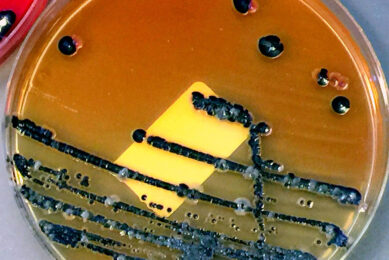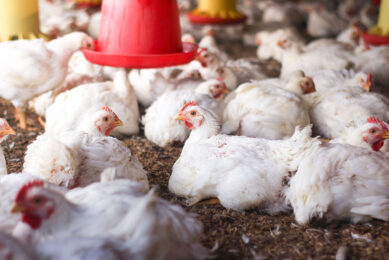US backyard flocks: Salmonella infection rates cause concern

Concerns about the increase in people infected by strains of Salmonella linked to contact with poultry in backyard flocks in the United States has prompted advice from veterinary experts.
The number of reported cases at the end of last month stood at 938 from 15 multistate outbreaks, exceeding the number reported at the same time of year in previous outbreaks linked to backyard flocks. The statistics show a 22% increase on last year’s figures. Figures from the Centres for Disease Control and Prevention (CDC) showed that public health officials from 48 US states have been involved in the investigations and that there has been one death and 151 people taken to hospital. Nearly 30% of ill people are children under 5.
 How Dutch broiler farmer eradicates Salmonella
How Dutch broiler farmer eradicates Salmonella
A Dutch broiler farmer got rid of a persistent Salmonella infection by applying multiple measures.
Dr Sherrill Davison, associate professor of avian medicine and pathology at the University of Pennsylvania’s School of Veterinary Medicine’s New Bolton Centre, said the nationwide situation was serious.
5 tips for raising backyard poultry:
Dr Davison, who is Penn Vet’s lead avian flock health expert, suggested 5 pieces of advice for backyard flock owners:
![]() Wash Your Hands: “Wash your hands with soap and water right after touching backyard poultry, their eggs, or anything in the area where they live and roam. Use hand sanitiser if soap and water are not readily available.”
Wash Your Hands: “Wash your hands with soap and water right after touching backyard poultry, their eggs, or anything in the area where they live and roam. Use hand sanitiser if soap and water are not readily available.”
![]() Keep Bad Eggs at Bay: “Be sure to collect your eggs often as eggs that sit in the nest for too long become dirty or break, increasing risk of infection. If you do find cracked eggs, throw them away immediately. Germs can more easily enter through a cracked shell, putting you at risk.”
Keep Bad Eggs at Bay: “Be sure to collect your eggs often as eggs that sit in the nest for too long become dirty or break, increasing risk of infection. If you do find cracked eggs, throw them away immediately. Germs can more easily enter through a cracked shell, putting you at risk.”
![]() Clean Eggs carefully: Collected eggs should be cleaned carefully with a fine sandpaper, a brush or a cloth – but be wary about washing them too soon. “The CDC advises against washing warm, fresh eggs because colder water can pull germs into the egg.”
Clean Eggs carefully: Collected eggs should be cleaned carefully with a fine sandpaper, a brush or a cloth – but be wary about washing them too soon. “The CDC advises against washing warm, fresh eggs because colder water can pull germs into the egg.”
![]() Check out the interactive Poultry Health Tool
Check out the interactive Poultry Health Tool
The latest insights on the 40+ most common poultry diseases.
![]() Cook eggs properly: “Raw and undercooked eggs may contain Salmonella bacteria that make you sick.” Egg dishes should be cooked to an internal temperature of 160F (71C) or hotter.
Cook eggs properly: “Raw and undercooked eggs may contain Salmonella bacteria that make you sick.” Egg dishes should be cooked to an internal temperature of 160F (71C) or hotter.
![]() Hatch good poultry husbandry practices: Keeping healthy birds is at the heart of staving off disease. If starting or expanding a flock, make sure to purchase your birds from a reliable source. Most hatcheries, including mail-order hatcheries, implement interventional practices to help prevent contamination and infection of Salmonella as well as other well-known diseases. If you get birds from an auction or a neighbour, quarantine the new birds and get them tested to avoid rampant spread of disease in the flock. Healthy birds need continual access to plenty of fresh, clean water and proper types of food for each stage of the flock’s life. In every case, keep the bird’s housing safe from predators and from wild bird contact: “This includes keeping the henhouse away from wild bird feeders which can be a source of another disease known as Mycoplasma respiratory infections in flocks,” she said.
Hatch good poultry husbandry practices: Keeping healthy birds is at the heart of staving off disease. If starting or expanding a flock, make sure to purchase your birds from a reliable source. Most hatcheries, including mail-order hatcheries, implement interventional practices to help prevent contamination and infection of Salmonella as well as other well-known diseases. If you get birds from an auction or a neighbour, quarantine the new birds and get them tested to avoid rampant spread of disease in the flock. Healthy birds need continual access to plenty of fresh, clean water and proper types of food for each stage of the flock’s life. In every case, keep the bird’s housing safe from predators and from wild bird contact: “This includes keeping the henhouse away from wild bird feeders which can be a source of another disease known as Mycoplasma respiratory infections in flocks,” she said.
 Exploring ways to reduce salmonella in poultry
Exploring ways to reduce salmonella in poultry
Researchers from 2 US universities have joined forces with the USDA to explore alternatives to antibiotics for reducing salmonella in poultry.
Dr Davison says with proper care, backyard birds can be a safe, healthy and productive pastime: “It is just a matter of implementing simple, but appropriate, preventative practices to reduce the incidence of disease.”
Join 31,000+ subscribers
Subscribe to our newsletter to stay updated about all the need-to-know content in the poultry sector, three times a week. Beheer
Beheer








 WP Admin
WP Admin  Bewerk bericht
Bewerk bericht